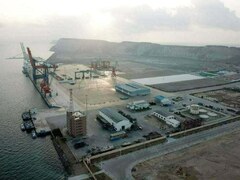Hyundai Motor Group will invest $1.6 billion in a joint venture to develop self-driving vehicle technologies with Aptiv, the biggest overseas investment by the South Korean carmaker to catch up to rivals in the autonomous car market.
Global carmakers and their suppliers are forging alliances to develop autonomous car technologies partly due to the need to share the huge financial and technical burdens.
Hyundai has lagged global rivals who have invested heavily into developing new technologies for electrified and autonomous vehicles. For example, BMW and Daimler announced earlier this year that they would join forces on automated driving technology.
Hyundai Motor, Kia Motors and Hyundai Mobis will collectively contribute $1.6 billion in cash and $400 million in research and development resources and others, valuing the joint venture $4 billion, Hyundai Group and Aptiv said in a joint statement.
Dublin-headquarterd Aptiv, which will own 50% of the joint venture, will contribute its autonomous driving technology, intellectual property, and approximately 700 employees focused on the development of scalable autonomous driving solutions.
Aptiv Chief Executive Kevin Clark in a joint interview with Hyundai Executive Vice Chairman and heir apparent Euisun Chung on Monday said the joint venture at this point would not get involved in running ride-hailing, data or network services of its own.
Instead, the new firm will begin testing fully driverless systems in 2020 and have a production-ready autonomous driving platform available for robotaxi providers, fleet operators and automakers in 2022.
"Uber is developing its own technology, but potentially our technology could be better than theirs and then they could also become our customers," Chung said through a translator.
Clark said the alliance would initially focus on self-driving technology for passenger vehicles. But Chung said the Aptiv partnership could ultimately also help Hyundai speed up automation for commercial vehicles, such as long-haul trucks.
The executives said their technology will be tested and developed across Asia, Europe and the United States to offer products tailored to the regulatory and driving environment in all major markets. They said they would discuss additional alliance members going forward.
Aptiv, which manufactures vehicle components and provides technology for self-driving cars, was formerly known as Delphi Automotive, which was split into Aptiv and Delphi Technologies in 2017.
Market research firm Navigant Research Aptiv put Aptiv at No.4 among automated driving system companies, following Waymo, General Motors and Ford. Hyundai is not among the top 10 vendors, according to Navigant Research.
Aptiv said in its 2018 annual report that Hyundai Mobis was one of its competitors in advanced safety and user experience segment, along with Bosch Group and Denso Corporation.
Its major customers include GM, Volkswagen and Fiat, according to the annual report. Hyundai Motor is also one of its customers, a Hyundai spokesman said.
The latest investment is another sign that Hyundai has abandoned its strategy of developing technology in-house, a strategy which previously raised investor concerns that it may be left behind in the race for future mobility.
Hyundai, along with affiliate Kia Motors ranks fifth in global sales, have joined rivals in making a series of investments in technology firms, including self-driving car tech startup Aurora, especially after Chung was promoted a year ago.
Hyundai Motor said in February that it will invest 14.7 trillion won ($12.3 billion) in future technologies such as self-driving, connectivity and car sharing areas by 2023.
BR100
7,874
Increased By
36.2 (0.46%)
BR30
25,599
Increased By
139.8 (0.55%)
KSE100
75,342
Increased By
411.7 (0.55%)
KSE30
24,214
Increased By
68.6 (0.28%)





















Comments
Comments are closed.